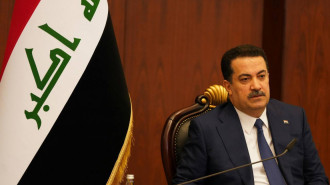Somaliland clashes displace more than 185,000: UN
Clashes have forced more than 185,000 people to flee their homes in a contested border town in Somalia's breakaway region of Somaliland, the UN's emergency response agency said.
Somaliland, which has claimed independence from Somalia since 1991, but has never been recognised internationally, is often seen as a beacon of stability in a chaotic region.
Political unease, however, has surged in recent months, with deadly violence erupting last week between government forces and militias loyal to Somalia in the contested town of Las Anod.
Day 12 @musebiihi & his armed Somaliland militia have attacked Lascanood from the eastern side of the city during Juma prayers. He informs the international community he wants peace but contradicts himself by continuing to indiscriminately shell the city with heavy weaponry. pic.twitter.com/zG1Rg7XudH
— Digital Pastoralist 🐪 🐫 🍚 🍌 (@waddaniForever) February 17, 2023
In a statement released late Thursday, the UN's Office for the Coordination of Humanitarian Affairs (OCHA) in Somalia said reports of heavy fighting were continuing to surface despite a declared ceasefire.
"More than 185,000 people have been displaced," it said, with aid workers struggling to respond to the situation due to inadequate resources.
According to OCHA, women and children accounted for an estimated 89 percent of the displaced population, with many reportedly seeking shelter under trees or inside schools, which have been forced to shut due to the violence.
OCHA said that officials at Las Anod General Hospital had reported 57 deaths, with 401 injured victims treated at four different hospitals.
In addition to the tens of thousands of people displaced inside Somaliland, more than 60,000 others have fled to Ethiopia's Somali region to escape the violence, the UN's refugee agency said Friday.
"Exhausted and traumatized, they have arrived with very little, only taking what they could carry," UNHCR spokeswoman Olga Sarrado Mur told a press briefing in Geneva.
"An average of 1,000 people continue to cross into Ethiopia each day," she said, adding that resources were stretched thin in the Somali region, which is in the throes of a record drought, following five failed rainy seasons.
"The announcement last week that neighbouring states, particularly Ethiopia and Kenya, would become more militarily involved in Somalia has reopened old wounds."
— The New Arab (@The_NewArab) February 10, 2023
Why a joint offensive against Al-Shabab could backfire ⬇ https://t.co/uD4tp8Zz6P
The latest fighting broke out on February 6 in Las Anod, which is situated on a key trade corridor and is claimed by both Somaliland and neighbouring Puntland, a semi-autonomous state of northeastern Somalia.
The violence erupted after elders in the Sool region, where Las Anod is located, issued a statement pledging support for Somalia's federal government and urged Somaliland authorities to withdraw their soldiers from the area.
Somaliland authorities announced a ceasefire on February 10, but on Sunday accused Somalia of attacking its forces.
Mogadishu did not respond directly to the allegations.
On Friday, Somalia's Prime Minister Hamza Abdi Barre welcomed the ceasefire and called for "immediate access to humanitarian assistance".
"With thousands of people displaced, the need for emergency relief is more pressing now," he said on Twitter.
Control of Las Anod has changed hands several times in recent decades.
Somaliland, a region of 4.5 million people, is a former British protectorate.
It prints its own currency, issues its own passports and elects its own government but its quest for statehood has gone unrecognised, leaving it poor and isolated.
The region has been relatively stable in comparison to Somalia, which has witnessed decades of civil war and Islamist insurgency.







 Follow the Middle East's top stories in English at The New Arab on Google News
Follow the Middle East's top stories in English at The New Arab on Google News

![The new film casts Israeli actors to tell the story of Mary while leaving out Palestinians [Getty]](/sites/default/files/styles/image_330x185/public/2024-11/GettyImages-2172155541.jpg?h=199d8c1f&itok=wJWyXDEQ)
![Ben & Jerry's has taken Unilever to court for its alleged attempts to silence it [Getty]](/sites/default/files/styles/image_330x185/public/2024-11/GettyImages-2183900214.jpg?h=199d8c1f&itok=jEcYtQ64)